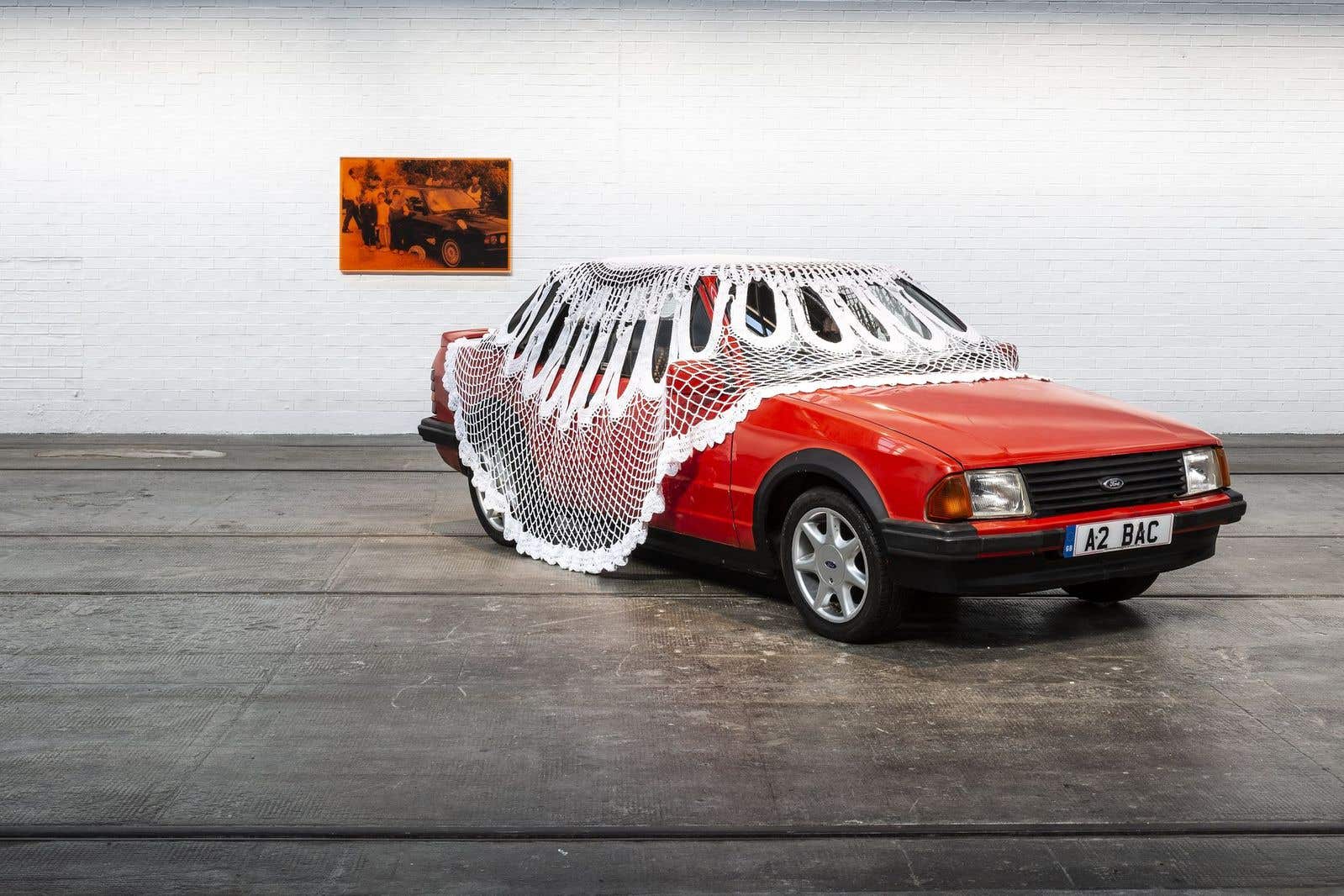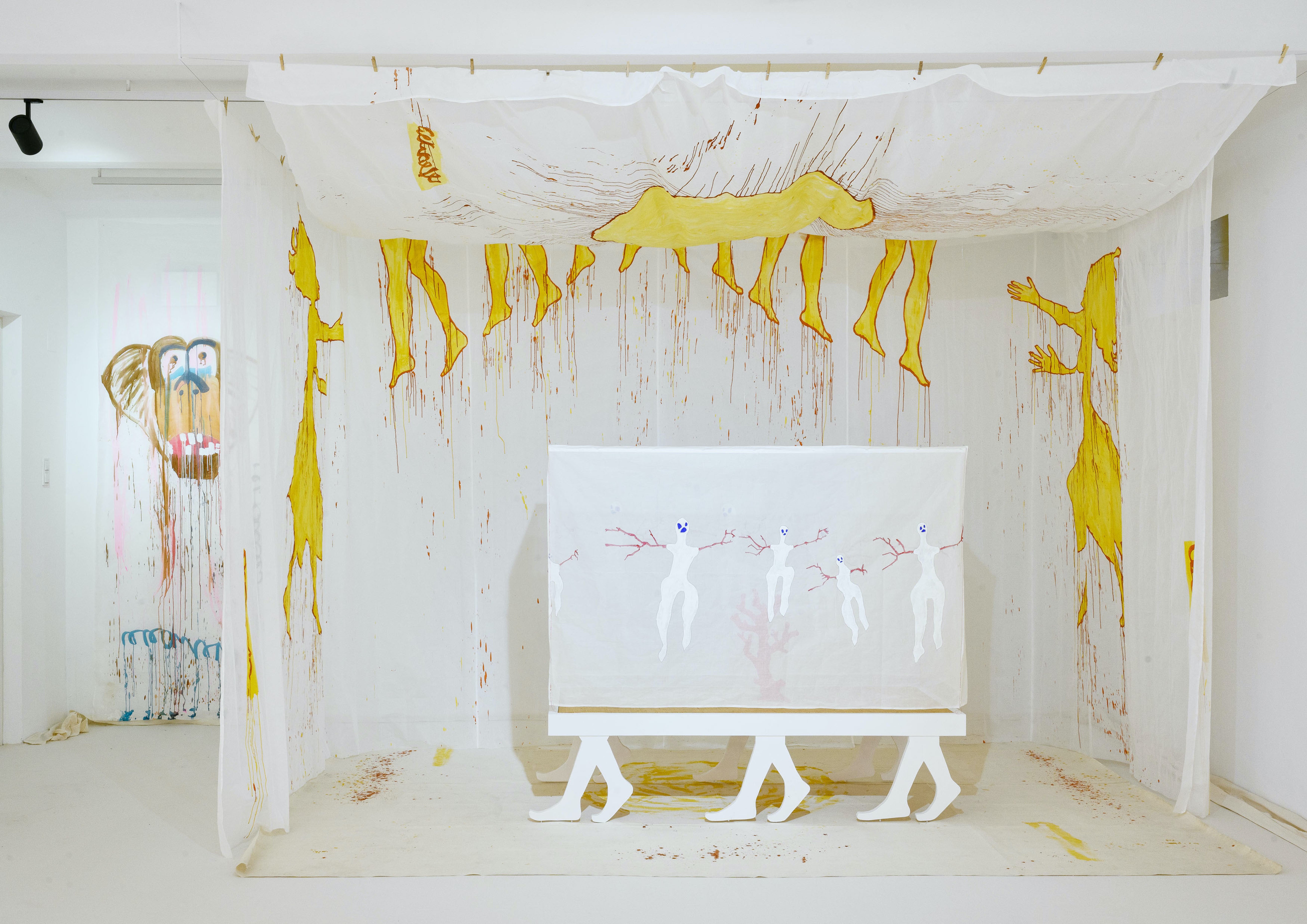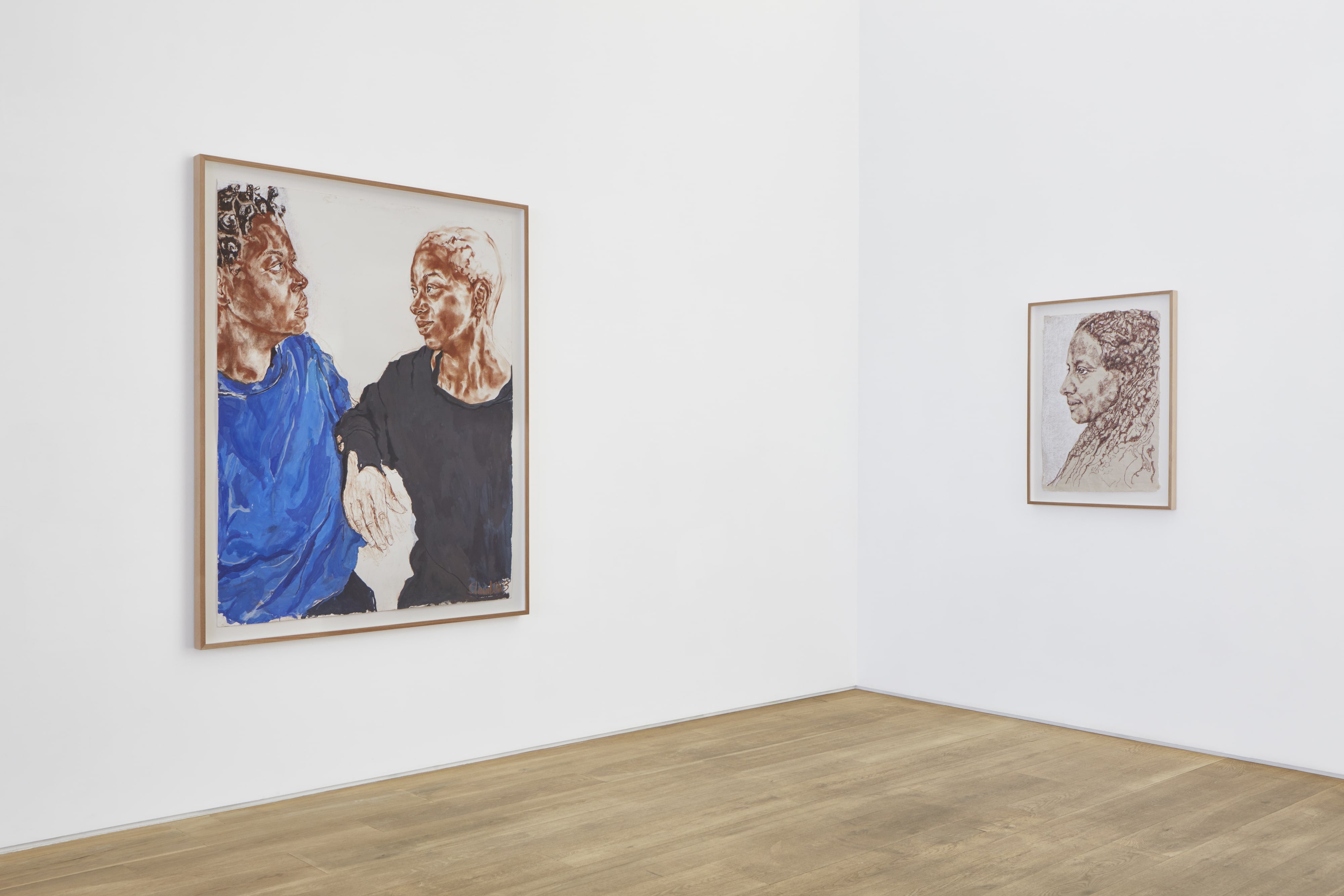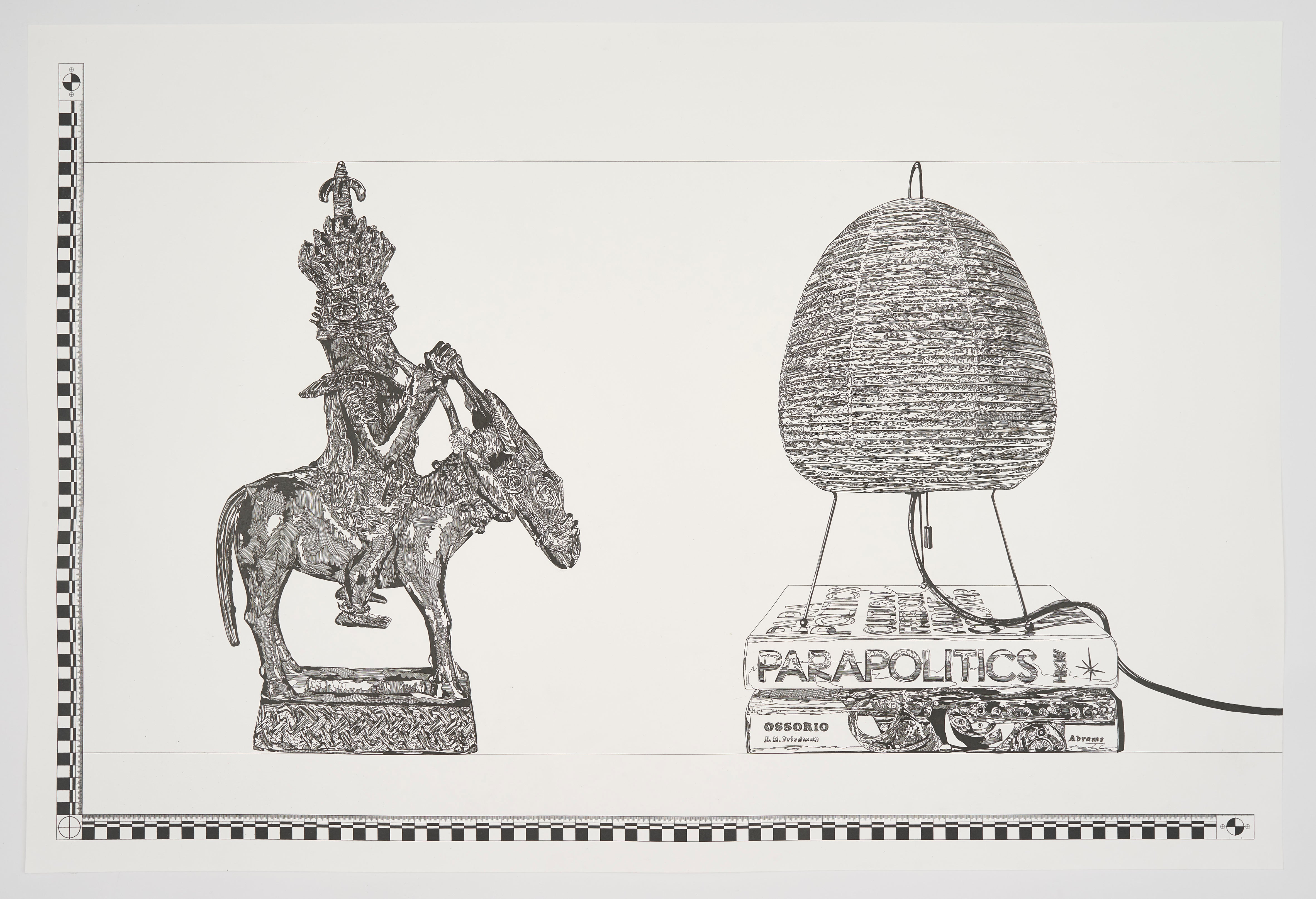Culture, identity and a red Ford Escort: Meet the artists on the Turner Prize 2024 shortlist
This year’s startling lineup shows how looking back can shed light on the world today

A Scottish Sikh artist who covered a red Ford Escort with an ornamental doily mat has been shortlisted for the £25,000 Turner Prize – in a striking year where culture and identity come to the fore.
With a strong theme of family history running through their works, the chosen artists have demonstrated how looking back can be the perfect way to examine the world we are living in today.
Pio Abad, Claudette Johnson, Jasleen Kaur and Delaine Le Bas make up the 2024 shortlist, and their works will be exhibited at the Tate Britain from 25 September until 16 February 2025.
The four were praised today (24 April) by judges Sam Thorne and Rosie Cooper at the Tate Modern, who noted that while some have longer-standing histories than others, they were ultimately chosen because of the brave artistic practices they are undertaking today.
One of the most striking artists shortlisted is Jasleen Kaur, 32, whose Glasgow-based 2023 exhibition drew upon her experience of growing up in the city’s Sikh community in Pollokshields.
Her powerful sculptures address themes of marginalisation and identity and include a replica of her father’s red Ford Escort covered by a doiley.
Judge Rosie Cooper praised: “Images, sounds and objects that spoke to Kaur’s upbringing were set in dialogue with gathered images that speak to protests and collaboration across place and culture.
“These [have all been] renamed or repurposed, described as ‘against the mainstream in some way’.”

Cooper added: “The car is a representation of the of her dad’s first car and his migrant desires. Blasted snippets of uplifting pop songs referenced freedom and liberation throughout the space.”
An example of this ‘pushing back against the mainstream’ in the exhibition also included a tracksuit, which read “Can’t do it” in Nike script.
The exhibition also included the iconic Scottish drink, Irn-Bru.
Meanwhile, the subjects of identity and history and their relation to society were explored through a powerful immersive 2023 exhibition by Delaine Le Bas, 58.
Using painted fabrics, theatrical costumes and sculptures for the Vienna-based exhibit, she drew upon the themes of death and rebirth in the wake of her grandmother’s death, touching upon her Roma identity.
Cooper noted: “The exhibition was really rooted in [the artist’s] response to social and political turmoil, combined with grief following the death of her grandmother and her long-standing interest in the female power figures across history.”
Some of the notable features of the exhibit included fabrics that fluttered as viewers walked by, depicting human-animal hybrids that Cooper said have “haunted the artist over decades”.
Cooper observed: “A replica of her own baby shoes that took pride of place in her late grandmother’s cabinet [was also featured].”

A more traditional artistic exploration of identity is depicted in Claudette Johnson’s portraits of black women and as noted today “more recently” men, which were showcased in exhibitions in London and New York last year.
The 65-year-old’s paintings were said to offer viewers intimate encounters and were praised for going some way to address the marginalisation of black people in Western art.
Judge Sam Thorne said the works created from pastels, gouache and watercolour were designed to “take up space in a way that’s reflective of who they are”.
He added: “[The figures] have vibrant kind of presence of resonance that the art is most frequently being distorted, hidden and denied.”

At a time when questions have been raised about museums and their acquisitions processes, Pio Abad, 39, tackled the issues of colonial histories and their losses head-on in his Oxford-based exhibit, which is still running.
He does so with his drawings, etchings and sculptures that, much like the other shortlistees’ work, are informed by his own identity and upbringing in the Philippines.
Thorne said: “It’s an exhibition that comprises of drawings, etchings, engravings [and] sculptures. [The exhibition] yokes together far-flung locations from the artist’s southeast London home to Oxford to the Philippines.
“He’s providing a view of history, of visual, culture from beneath. [It is] an act of illumination that puts unexamined histories on display.”

The overall winner of the prize, which is celebrating its 40th anniversary, will be announced on 3 December in a ceremony at the Tate Britain.
They will receive £25,000 and the other three shortlistees will each receive £5,000.
Join our commenting forum
Join thought-provoking conversations, follow other Independent readers and see their replies
Comments
Bookmark popover
Removed from bookmarks